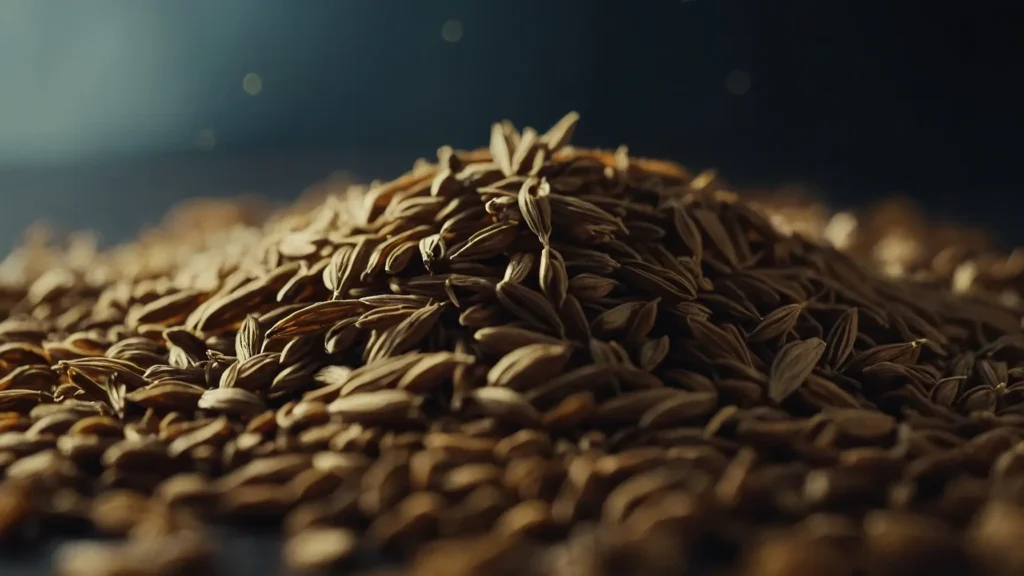Can Dogs Eat Cumin?

As a dedicated dog blogger and an owner of a furry companion, I’ve embarked on countless adventures in pet nutrition and health. Understanding what’s beneficial or harmful to our canine friends is more than just a responsibility; it’s a journey we embark on out of love. Today, I want to explore an intriguing question that might have crossed your mind: Can dogs eat cumin? This spice, renowned for its warm, earthy flavor, is a staple in various cuisines around the world. But when it comes to sharing our favorite dishes with our dogs, it’s crucial to tread carefully. This post aims to delve deep into the world of cumin as it relates to dog nutrition, dissecting the good, the potential bad, and how it compares with other plant species in terms of canine safety. Join me as we uncover the mysteries of cumin and its place in your dog’s diet.
Is Cumin Good for Dogs?
Cumin, derived from the Cuminum cyminum plant, is rich in iron, manganese, and other essential minerals, offering a spectrum of health benefits. In moderation, cumin can be a good addition to a dog’s diet. Its anti-inflammatory properties can aid in digestion and help alleviate bloating, making it a soothing ingredient for dogs with sensitive stomachs. Additionally, cumin is known for its antioxidant properties, which can help in combating free radicals, thereby supporting your dog’s overall health.
However, the key to harnessing these benefits lies in moderation. Small, infrequent doses can be a nice supplement to your dog’s diet, enhancing flavor and providing nutritional benefits. It’s also important to introduce cumin gradually to monitor any adverse reactions, as each dog’s digestive system is unique.
Is Cumin Bad for Dogs?
While cumin can be beneficial, there are potential downsides to consider. The primary concern with cumin—and spices, in general—is the risk of gastrointestinal upset. Dogs have sensitive digestive systems, and introducing strong flavors or spices can lead to diarrhea, vomiting, or nausea. Furthermore, excessive consumption of cumin could lead to iron overload, which is particularly harmful to dogs with existing liver or kidney issues.

Another point of consideration is the form in which cumin is introduced. Cumin seeds, powders, or oils each have different potencies, and the risk of overconsumption can vary accordingly. It’s crucial to avoid any cumin-based products that contain additional spices or ingredients that could be toxic to dogs, such as onions or garlic.
Are Other Plant Species Safe For Dogs?
When expanding your dog’s diet to include new flavors and nutrients, it’s essential to research and understand which plant species are safe. Herbs like parsley and basil can be beneficial in small amounts, offering vitamins and antioxidants with minimal risk. However, not all plants are dog-friendly. For instance, chives, garlic, and onions are toxic to dogs and can cause serious health issues.
The safety of plant species for dogs also depends on the individual dog’s health, size, and dietary needs. Always consult with a veterinarian before introducing new foods into your dog’s diet, especially if your dog has pre-existing health conditions or is on medication.
Final Thoughts
In the diverse world of canine nutrition, “Can Dogs Eat Cumin?” represents both an opportunity for dietary enrichment and a reminder of the need for caution. Moderation is paramount when introducing any new food to your dog’s diet, and “Can Dogs Eat Cumin?” is no exception. The potential health benefits of cumin make it a spice worth considering, but always with a mindful approach to quantity and frequency.
As dog owners, our journey is to provide the best care and nutrition for our furry companions. By educating ourselves and consulting with veterinary professionals, we can make informed decisions that enhance our dogs’ health and happiness. Remember, every dog is unique, and what works for one may not work for another. Treat “Can Dogs Eat Cumin?” as you would any new addition to your dog’s diet—with curiosity, caution, and care.










